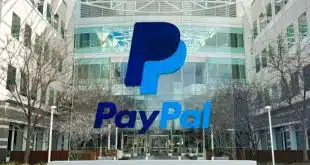Patents usually get the most attention when a person or company files for one, but the one held by Amazon.com Inc. for single-click buying that is set to expire Tuesday is generating plenty of buzz about how much, if at all, e-commerce will change when it’s gone.
Granted by the U.S. Patent and Trademark Office in 1999, about two years after Amazon applied for it, Patent No. 5,960,411 enabled purchasers on Amazon’s site to buy goods online with a single mouse click that would access their stored payment card and shipping information. Issued at the dawn of the online-commerce era, the patent was an important steppingstone on Amazon’s long road to its current Internet retailing dominance.
The business-method patent forced other online retailers and e-commerce service providers to either devise their own methods for hassle-free payments and shipping, or license the system from Amazon. Some, such as Apple Inc., chose the latter course, according to an analysis by intellectual-property lawyer Richard M. Mescher of Porter Wright Morris & Arthur LLP in Columbus, Ohio.
The expiration means that the purchasing method that was Amazon’s intellectual property now goes into the public domain.
“This is good news if you like to use single-click buying at Amazon.com, iTunes, iPhoto, Apple App Store … because many other companies will begin using this technology once the 1-Click patent expires,” Mescher wrote. “If you have an e-commerce site, you should be preparing for the single-click world where many customers will likely come to expect ‘frictionless transactions’ everywhere, including mobile applications.”
Although more companies indeed will have access to the payment process, another observer believes not a lot will change come Sept. 12. That’s because many companies have already figured out their own ways for handling e-commerce transactions quickly.
“This is still newsworthy, but not what it was two decades ago,” analyst Michael Moeser, director of payments practice at Pleasanton, Calif.-based Javelin Strategy & Research, tells Digital Transactions News by email. “Many companies have developed work-arounds, such as PayPal’s 1-touch and Stripe’s 1-tap.”
In addition, newer systems such as Visa Inc.’s Visa Checkout and Mastercard Inc.’s Masterpass also have simplified online purchasing, and “usage of [computer] cookies with the ‘remember me’ functionality can easily negate the 1-click advantage,” Moeser adds.
Still, some companies have gone the Apple route and simply paid Amazon to license the system. The value of 1-Click’s licensing revenue is a closely guarded secret at Seattle-based Amazon, which did not respond to Digital Transactions News’s requests for comment. But one e-commerce marketing executive estimated it at $2.4 billion annually.
As a patent on a process rather than an actual new thing such as an electronic component or piece of machinery, 1-Click was controversial for years but survived legal challenges. Amazon, however, tried and failed to get 1-Click patented in the European Union, Moeser said.
The loss of whatever revenues 1-Click generates comes at the same time Amazon starts getting an entirely new revenue stream from its just-completed acquisition of the Whole Foods grocery-store chain. If the patent was still effective for five or 10 more years, that acquisition might have generated antitrust complaints from Amazon’s rivals and possibly the U.S. Justice Department, Moeser believes. “I think … the Whole Foods acquisition was uniquely timed with the expiration of this patent,” he says.
Mescher noted that tech giants such as Apple, Facebook, Microsoft, and Google met a year ago to develop standards for adding payment credentials to Web browsers to enable single-click purchases. And a Google executive recently outlined plans by the search-engine giant to use the millions of consumer credentials it has in its databases for fast mobile and online payments.
The 1999 patent lists four inventors, including Amazon founder and chief executive Jeff Bezos.





